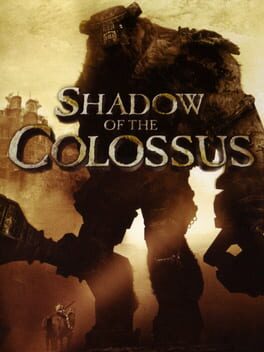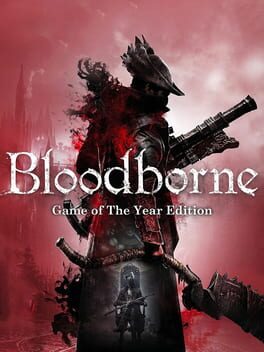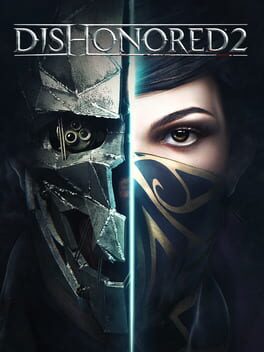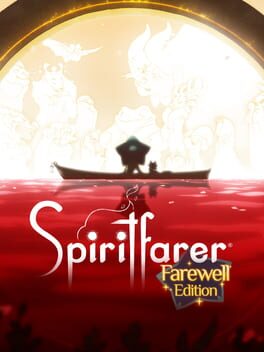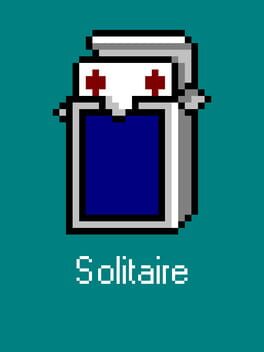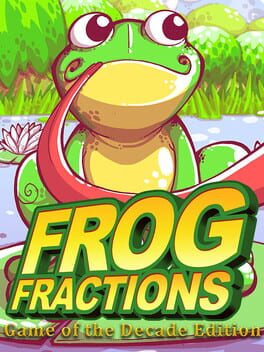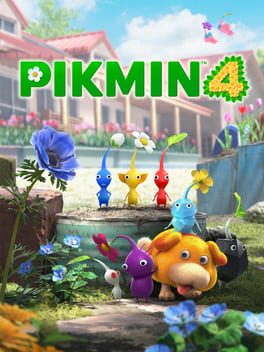Esbylion
Bio
Nothing here!
Badges

Gone Gold
Received 5+ likes on a review while featured on the front page

Liked
Gained 10+ total review likes

Noticed
Gained 3+ followers

Elite Gamer
Played 500+ games

Gamer
Played 250+ games

N00b
Played 100+ games
Favorite Games
521
Total Games Played
011
Played in 2024
043
Games Backloggd
Recently Played See More
Recently Reviewed See More
It doesn't bring me any joy to write this. When Spiritfarer is a Work that's About Things, it's exciting and fresh, thoughtful and tender. Unfortunately, most of the time it's not about anything at all.
I will readily acknowledge that this is, in part, a 'me' problem. There's long been a disconnect between me and games like Stardew Valley and Harvest Moon. What is intended to be a gentle day-night cycle of reaping and sowing becomes a stressful exercise in efficiency. An hour is something that has value to me, and games that cannot balance a calculation against that value quickly begin to grate. And most of the time, that's just fine. I simply do not play games that are about those kinds of experiences. The trouble with Spiritfarer is that it is striving to be something else.
Spiritfarer claims to be a game about grieving, about the experience of being around for the end of someone's life. It promises to explore this from myriad angles, to allow you to genuinely grow close to characters in their brief afterlife, and to experience what it's like to farewell them. As much as a video game can, I do think it succeeds on this front. The charming, diverse character designs are immediately fun to watch, and the premise allows the writers to cut to the chase. Where other games might need to work harder to earn moments where characters reminisce on their life to the player, here it just, like, makes sense. They're dead. Why wouldn't they be preoccupied with the life they've lost?
It's that diversity of character that really drew me in. I was looking forward to seeing so many perspectives on this very real, significant experience, and the few chances I got did not disappoint. There was an initial period where the fantastical seascapes and vague allusions to the player character's history did not make sense, but after receiving a Spirit Flower - a parting gift from the passengers you ferry to the end - I was immediately on board with what the game was presenting me with. It felt genuinely exciting.
In a moment of pure tastelessness, you then immediately use up the Spirit Flower as a crafting ingredient to upgrade your boat so it can drive through ice.
Which brings me to the two biggest problems with Spiritfarer, and the things that will probably keep me from going back to play more of it; the progression, and the overabundance of 'mechanics'.
Let's start with the latter. There's a question hanging over Spiritfarer as a concept; what do you, the player, actually do? What does a Spiritfarer, one who accompanies the dead to the end of their existence, actually do? The answer that the game provides is deeply unsatisfactory. Sure, in principle, providing comfortable housing and tasty food is a wonderful thing to do in that role. What that looks like in practice, however, is primarily the accumulation of resources through extremely dull, extremely repetitive busywork. For example:
You plant a cotton seed in your garden. That seed, exactly like all the other seeds you plant, needs watering three times a day. Naturally, when you wake up in the morning, about a third of a day has passed, so your plants need water. You water them by pressing the interact button - each instance takes a few seconds of watching an animation - and do so again at about midday. You water them just before you go to bed. This cycle continues more or less as long as you're playing the game, so pretty much every night, you'll water the plants, go to sleep, wake up, and water the exact same plants again. Every single in-game day, if you want to play efficiently.
Or, let's say you need metals. To get the ore, you have to stand next to a rock and hold the interact button for the correct duration. Hold it too long, and you sit there for several seconds while an animation of your character falling over plays out. Once you have the ore, you can take it to the smelter on the ship, where you engage in a slightly different variety of busywork by running back and forth between two different interact button presses to keep a needle in the sweet spot on a dial.
You get the idea. None of these things really have anything to do with being a Spiritfarer. There's the distant idea that the fruits of your labor will make the people you're ferrying happy, but the actual act has nothing to do with them. You're tucked in a corner away from them, waiting for animations to finish. There are moments where they're arguably involved - happy passengers can provide you with small, infrequent benefits to these systems - but for the most part it's just, like, pressing the interact button and waiting for an action to finish.
This wouldn't be too much of a problem, if it weren't for the fact that the hours spent in these activities drastically outnumbers the time spent with the story. I have played for 14 hours - about halfway through the game, as I understand it - and maybe two or three hours of that have had any bearing on the characters I'm meant to be playing the game for. It's not impossible for a game to spread the story out between activities that aren't specifically related to it. Hades does an excellent job of a similar approach. The difference is that when you're playing Hades, you get to play Hades. Here, it's just pressing buttons and waiting.
And, unfortunately, you do need to engage with these mechanics. Each passenger on your ship has a questline, of sorts. They have objectives that they'll want you to complete to help them get comfortable, to help them overcome whatever's keeping them anchored to this plane of existence, to take care of their needs when they can't do it themselves. While arguably video-gamey, this is, in itself, a fine way to structure things. The problem is the tangled knot of progression that prevents you from pushing ahead with any aspect of the story. They obscure it, but there is a hard, harsh order to which you must progress the game. A character's demands will require obtaining a specific resource, which can only be obtained at specific locations, all of which are behind a specific obstacle that requires a specific upgrade, which cannot be obtained without completing the stories of two other characters, which have their own endless series of requirements, waiting periods, etc. etc.
It creates a situation where you are mostly progressing a single objective at a time, in a game where doing a single thing at a time is incredibly, insufferably boring, and means most of the people aboard your ship have nothing to do but ask you for food and remind you that they're waiting for you to finish something you can't even start yet. Sometimes the single thing you're doing is just waiting for the next story event to happen! When a story does progress, it's rewarding and interesting, but the things you have to do dig up that small piece of actual art are so insufferably, endlessly boring.
I find it frustrating, because none of this feels like an accident. It feels like this progression, these activities were deliberately crafted to be this way. Spiritfarer is described as a 'cozy' game, which puts it in a specific trend of games that, inspired by the aforementioned Stardew Valley, share many of these problems for me. Again, that's normally just a matter of taste, but in the pursuit of 'cozy', however one may feel about it, the developers have left behind the things that are actually special about what they were making. They didn't fall into it accidentally. They deliberately made a game that is deeply at odds with itself, that fills the time you give it with meaningless chaff that does nothing to further it as a work of art. Spiritfarer does not need gathering and crafting - or at least, does not need this much of it. There's something real special here, a wonderful and rich cake that I'd be all too happy to devour if it weren't for the unconscionably thick shell of fondant around it.
There is nothing wrong with a 12 hour game. If I can spend that much time with a game and enjoy even just most of it, that's time well spent. Spiritfarer could be an excellent 12 hour game. Instead, it promises twice that, and spreads what excellence it has far too thin to stomach. I'm profoundly disappointed.
I will readily acknowledge that this is, in part, a 'me' problem. There's long been a disconnect between me and games like Stardew Valley and Harvest Moon. What is intended to be a gentle day-night cycle of reaping and sowing becomes a stressful exercise in efficiency. An hour is something that has value to me, and games that cannot balance a calculation against that value quickly begin to grate. And most of the time, that's just fine. I simply do not play games that are about those kinds of experiences. The trouble with Spiritfarer is that it is striving to be something else.
Spiritfarer claims to be a game about grieving, about the experience of being around for the end of someone's life. It promises to explore this from myriad angles, to allow you to genuinely grow close to characters in their brief afterlife, and to experience what it's like to farewell them. As much as a video game can, I do think it succeeds on this front. The charming, diverse character designs are immediately fun to watch, and the premise allows the writers to cut to the chase. Where other games might need to work harder to earn moments where characters reminisce on their life to the player, here it just, like, makes sense. They're dead. Why wouldn't they be preoccupied with the life they've lost?
It's that diversity of character that really drew me in. I was looking forward to seeing so many perspectives on this very real, significant experience, and the few chances I got did not disappoint. There was an initial period where the fantastical seascapes and vague allusions to the player character's history did not make sense, but after receiving a Spirit Flower - a parting gift from the passengers you ferry to the end - I was immediately on board with what the game was presenting me with. It felt genuinely exciting.
In a moment of pure tastelessness, you then immediately use up the Spirit Flower as a crafting ingredient to upgrade your boat so it can drive through ice.
Which brings me to the two biggest problems with Spiritfarer, and the things that will probably keep me from going back to play more of it; the progression, and the overabundance of 'mechanics'.
Let's start with the latter. There's a question hanging over Spiritfarer as a concept; what do you, the player, actually do? What does a Spiritfarer, one who accompanies the dead to the end of their existence, actually do? The answer that the game provides is deeply unsatisfactory. Sure, in principle, providing comfortable housing and tasty food is a wonderful thing to do in that role. What that looks like in practice, however, is primarily the accumulation of resources through extremely dull, extremely repetitive busywork. For example:
You plant a cotton seed in your garden. That seed, exactly like all the other seeds you plant, needs watering three times a day. Naturally, when you wake up in the morning, about a third of a day has passed, so your plants need water. You water them by pressing the interact button - each instance takes a few seconds of watching an animation - and do so again at about midday. You water them just before you go to bed. This cycle continues more or less as long as you're playing the game, so pretty much every night, you'll water the plants, go to sleep, wake up, and water the exact same plants again. Every single in-game day, if you want to play efficiently.
Or, let's say you need metals. To get the ore, you have to stand next to a rock and hold the interact button for the correct duration. Hold it too long, and you sit there for several seconds while an animation of your character falling over plays out. Once you have the ore, you can take it to the smelter on the ship, where you engage in a slightly different variety of busywork by running back and forth between two different interact button presses to keep a needle in the sweet spot on a dial.
You get the idea. None of these things really have anything to do with being a Spiritfarer. There's the distant idea that the fruits of your labor will make the people you're ferrying happy, but the actual act has nothing to do with them. You're tucked in a corner away from them, waiting for animations to finish. There are moments where they're arguably involved - happy passengers can provide you with small, infrequent benefits to these systems - but for the most part it's just, like, pressing the interact button and waiting for an action to finish.
This wouldn't be too much of a problem, if it weren't for the fact that the hours spent in these activities drastically outnumbers the time spent with the story. I have played for 14 hours - about halfway through the game, as I understand it - and maybe two or three hours of that have had any bearing on the characters I'm meant to be playing the game for. It's not impossible for a game to spread the story out between activities that aren't specifically related to it. Hades does an excellent job of a similar approach. The difference is that when you're playing Hades, you get to play Hades. Here, it's just pressing buttons and waiting.
And, unfortunately, you do need to engage with these mechanics. Each passenger on your ship has a questline, of sorts. They have objectives that they'll want you to complete to help them get comfortable, to help them overcome whatever's keeping them anchored to this plane of existence, to take care of their needs when they can't do it themselves. While arguably video-gamey, this is, in itself, a fine way to structure things. The problem is the tangled knot of progression that prevents you from pushing ahead with any aspect of the story. They obscure it, but there is a hard, harsh order to which you must progress the game. A character's demands will require obtaining a specific resource, which can only be obtained at specific locations, all of which are behind a specific obstacle that requires a specific upgrade, which cannot be obtained without completing the stories of two other characters, which have their own endless series of requirements, waiting periods, etc. etc.
It creates a situation where you are mostly progressing a single objective at a time, in a game where doing a single thing at a time is incredibly, insufferably boring, and means most of the people aboard your ship have nothing to do but ask you for food and remind you that they're waiting for you to finish something you can't even start yet. Sometimes the single thing you're doing is just waiting for the next story event to happen! When a story does progress, it's rewarding and interesting, but the things you have to do dig up that small piece of actual art are so insufferably, endlessly boring.
I find it frustrating, because none of this feels like an accident. It feels like this progression, these activities were deliberately crafted to be this way. Spiritfarer is described as a 'cozy' game, which puts it in a specific trend of games that, inspired by the aforementioned Stardew Valley, share many of these problems for me. Again, that's normally just a matter of taste, but in the pursuit of 'cozy', however one may feel about it, the developers have left behind the things that are actually special about what they were making. They didn't fall into it accidentally. They deliberately made a game that is deeply at odds with itself, that fills the time you give it with meaningless chaff that does nothing to further it as a work of art. Spiritfarer does not need gathering and crafting - or at least, does not need this much of it. There's something real special here, a wonderful and rich cake that I'd be all too happy to devour if it weren't for the unconscionably thick shell of fondant around it.
There is nothing wrong with a 12 hour game. If I can spend that much time with a game and enjoy even just most of it, that's time well spent. Spiritfarer could be an excellent 12 hour game. Instead, it promises twice that, and spreads what excellence it has far too thin to stomach. I'm profoundly disappointed.
This is maybe more of a review of the concept of 'dandori' than it is strictly a review of the game, Pikmin 4, a mere vessel for that ethos.
Sometimes there simply isn't a word for the type of work a work of art is. Attempting to take genre classification seriously leads to either the insufficiently academic and endlessly debatable, or mashing together words into meaningless ad-libs. Is Pikmin a puzzle-game? Is it a puzzle real-time strategy with survival game elements? Probably, but neither of these things say much about what the game is. There's no game it's particularly *-like either. We laughed when Hideo Kojima coined the 'strand-type' game, but sometimes, that's all you can do.
The word that the developers of Pikmin 4 decided to use to describe their game is 'dandori', and it's a word that the localizers of Pikmin 4 struggle to translate. Broadly speaking, it's left as is. They describe it in-game as "[organizing] tasks strategically and working effectively to execute plans", which is not inaccurate, but also isn't exactly helpful either. However, the brilliance of Pikmin, and of this game in particular, is that to understand dandori, you don't need words. Pikmin is a game built to teach it to you, the way that Mario teaches you timing and spatial analysis, the way XCOM teaches you to manage risk.
If I were to take a stab at explaining it, dandori is about time management in a workplace. In that workplace, you have tasks, and workers. Those workers take time to complete those tasks, which are varying in nature, and spread out across the workplace. How can you complete as much of what you need to get done as possible before the day is over? Well, you might consider;
- Avoiding idleness. Time spent not working is time wasted (fortunately, in Pikmin your workers do not have needs and never tire, so any ethical concerns with this are neatly sidestepped)
- Knowing your workers, and assigning them the tasks they are best suited for. (Pikmin are pleasingly color-coded, and as of Pikmin 4, have diverse and overlapping strengths. They are also, while error-prone, perfectly obedient)
- Prioritizing tasks that make future tasks easier (You start each day surrounded by a tempting bouquet of flowers, a quick method of bolstering your Pikmin count)
As you can see, the answer is not a number, or a silver bullet. It is a series of principles, applied to each new situation as necessary, taught directly through simply playing the game. The answer is dandori.
And dandori is good. Let's assume, for a moment, that there is an inherent joy in the efficient completion of tasks - or at least, that you're the kind of person who thinks so. Pikmin 4 is a wonderful game for getting a lot of stuff done. Your ultimate goals are very straight forward, but the means by which you achieve them involve many different obstacles, cleanly broken down into assignable, varying tasks. They sit there, waiting for you to come and untangle them, wrapped in an overall game structure that wields a gentle, but unwavering time pressure to urge you onwards without ever forcing you to take drastic, unplanned action. That inherent joy I mentioned is found here in spades, and presented to the player with the immediacy typical of Nintendo's flagship titles - aside from a few minor quibbles with controls and pacing.
(There is an awful lot of talking throughout the game, which is time spent not doing dandori. I also found that it was harder than I would've wanted to send more Pikmin to help with a task than were required, which was noticeable, because that is a something you consider doing any time you do literally anything)
These small things cannot keep Pikmin 4 from being an outstanding, enjoyable adventure, that's simple and intuitive to get started with. The Nintendo design philosophy of simplifying player actions and pushing the complexity out into the world works wonders here. Assigning tasks to workers in most any game is at least a couple of interactions. Here, you just mash one button to throw your lil guys at the thing you want until it starts happening. Feedback on the progress of tasks is immediate and clear. Outside of some of the more challenging instances of combat, thinking about something is as good as doing it.
There's next to no barriers between the player and their engagement with the organisational thinking that dandori benefits.
In truth, every Pikmin game has been about dandori, even if the term was freshly coined for the fourth. Every Pikmin game changes the things around that core concept - new tasks, new workers, varying degrees of co-operative gameplay - but dandori has always been there. In all three prior games, you are explicitly graded on how quickly you completed your tasks, which is a direct consequence of how well you managed your workforce, which can only be improved through the application of the principles of dandori. Though the consequences of working too inefficiently have perhaps become gentler in recent games, it is still the thing that drives the player forward.
This is the sort of thing Nintendo has always done, for better or worse. Take some gameplay that's fun and approachable, put class-leading kid-friendly character design on it, and spend the next two or three decades examining it in new contexts, finding new ways to get at that core. Here, in Pikmin, that core is not movement, or combat, or even exploration.It's not any of the actions you perform in-game, though those haven't needed to change much over two decades. The core is the philosophy of dandori, how you think about the actions you're performing in that broader, more malleable context. And unlike previous Pikmin games, Pikmin 4 finds a way to demonstrate how it comes from outside the world of games, exists wherever work and organisation do.
See, Pikmin 4 is actually about half a dozen Pikmin games. Or, it's more like one really big Pikmin game, with a bunch of smaller auxiliary games in its orbit. Each game is presented to you piecemeal as you progress through the story, one level at a time, spread out through a larger story. Most of them are even optional, if you don't like what they're cooking. But all of them, again, rely on dandori. Whether it's a compressed, five-minute version of the base experience, or a survival horror wave defense, or messy competitive battles, you use the same core principles in each and every additional game. Where a game series might normally take entry after entry to explore its core conceit so thoroughly and from so many angles, Pikmin 4 leaps past its predecessors to do it in one. Not only does it teach you dandori - it universalizes it.
That's the wonder of Pikmin 4. It's not that there's so much of it, or that it's so lovingly rendered. It's that it really, truly wants to teach you how fun it can be to make and execute a plan. It wants you to learn dandori, and it will gently hold your hand and lead you directly to it, if you let it. It'll show you dandori from each of its distinct perspectives, whichever ones you find fun enough to dig into. If you're really taking to it, it won't hesitate to let you take the challenge as far as you want. 'How could you apply these concepts in your daily life?' Pikmin 4 asks, in one of many load screen tooltips. Once you've played the game, it might be hard not to look for answers to that question
Sometimes there simply isn't a word for the type of work a work of art is. Attempting to take genre classification seriously leads to either the insufficiently academic and endlessly debatable, or mashing together words into meaningless ad-libs. Is Pikmin a puzzle-game? Is it a puzzle real-time strategy with survival game elements? Probably, but neither of these things say much about what the game is. There's no game it's particularly *-like either. We laughed when Hideo Kojima coined the 'strand-type' game, but sometimes, that's all you can do.
The word that the developers of Pikmin 4 decided to use to describe their game is 'dandori', and it's a word that the localizers of Pikmin 4 struggle to translate. Broadly speaking, it's left as is. They describe it in-game as "[organizing] tasks strategically and working effectively to execute plans", which is not inaccurate, but also isn't exactly helpful either. However, the brilliance of Pikmin, and of this game in particular, is that to understand dandori, you don't need words. Pikmin is a game built to teach it to you, the way that Mario teaches you timing and spatial analysis, the way XCOM teaches you to manage risk.
If I were to take a stab at explaining it, dandori is about time management in a workplace. In that workplace, you have tasks, and workers. Those workers take time to complete those tasks, which are varying in nature, and spread out across the workplace. How can you complete as much of what you need to get done as possible before the day is over? Well, you might consider;
- Avoiding idleness. Time spent not working is time wasted (fortunately, in Pikmin your workers do not have needs and never tire, so any ethical concerns with this are neatly sidestepped)
- Knowing your workers, and assigning them the tasks they are best suited for. (Pikmin are pleasingly color-coded, and as of Pikmin 4, have diverse and overlapping strengths. They are also, while error-prone, perfectly obedient)
- Prioritizing tasks that make future tasks easier (You start each day surrounded by a tempting bouquet of flowers, a quick method of bolstering your Pikmin count)
As you can see, the answer is not a number, or a silver bullet. It is a series of principles, applied to each new situation as necessary, taught directly through simply playing the game. The answer is dandori.
And dandori is good. Let's assume, for a moment, that there is an inherent joy in the efficient completion of tasks - or at least, that you're the kind of person who thinks so. Pikmin 4 is a wonderful game for getting a lot of stuff done. Your ultimate goals are very straight forward, but the means by which you achieve them involve many different obstacles, cleanly broken down into assignable, varying tasks. They sit there, waiting for you to come and untangle them, wrapped in an overall game structure that wields a gentle, but unwavering time pressure to urge you onwards without ever forcing you to take drastic, unplanned action. That inherent joy I mentioned is found here in spades, and presented to the player with the immediacy typical of Nintendo's flagship titles - aside from a few minor quibbles with controls and pacing.
(There is an awful lot of talking throughout the game, which is time spent not doing dandori. I also found that it was harder than I would've wanted to send more Pikmin to help with a task than were required, which was noticeable, because that is a something you consider doing any time you do literally anything)
These small things cannot keep Pikmin 4 from being an outstanding, enjoyable adventure, that's simple and intuitive to get started with. The Nintendo design philosophy of simplifying player actions and pushing the complexity out into the world works wonders here. Assigning tasks to workers in most any game is at least a couple of interactions. Here, you just mash one button to throw your lil guys at the thing you want until it starts happening. Feedback on the progress of tasks is immediate and clear. Outside of some of the more challenging instances of combat, thinking about something is as good as doing it.
There's next to no barriers between the player and their engagement with the organisational thinking that dandori benefits.
In truth, every Pikmin game has been about dandori, even if the term was freshly coined for the fourth. Every Pikmin game changes the things around that core concept - new tasks, new workers, varying degrees of co-operative gameplay - but dandori has always been there. In all three prior games, you are explicitly graded on how quickly you completed your tasks, which is a direct consequence of how well you managed your workforce, which can only be improved through the application of the principles of dandori. Though the consequences of working too inefficiently have perhaps become gentler in recent games, it is still the thing that drives the player forward.
This is the sort of thing Nintendo has always done, for better or worse. Take some gameplay that's fun and approachable, put class-leading kid-friendly character design on it, and spend the next two or three decades examining it in new contexts, finding new ways to get at that core. Here, in Pikmin, that core is not movement, or combat, or even exploration.It's not any of the actions you perform in-game, though those haven't needed to change much over two decades. The core is the philosophy of dandori, how you think about the actions you're performing in that broader, more malleable context. And unlike previous Pikmin games, Pikmin 4 finds a way to demonstrate how it comes from outside the world of games, exists wherever work and organisation do.
See, Pikmin 4 is actually about half a dozen Pikmin games. Or, it's more like one really big Pikmin game, with a bunch of smaller auxiliary games in its orbit. Each game is presented to you piecemeal as you progress through the story, one level at a time, spread out through a larger story. Most of them are even optional, if you don't like what they're cooking. But all of them, again, rely on dandori. Whether it's a compressed, five-minute version of the base experience, or a survival horror wave defense, or messy competitive battles, you use the same core principles in each and every additional game. Where a game series might normally take entry after entry to explore its core conceit so thoroughly and from so many angles, Pikmin 4 leaps past its predecessors to do it in one. Not only does it teach you dandori - it universalizes it.
That's the wonder of Pikmin 4. It's not that there's so much of it, or that it's so lovingly rendered. It's that it really, truly wants to teach you how fun it can be to make and execute a plan. It wants you to learn dandori, and it will gently hold your hand and lead you directly to it, if you let it. It'll show you dandori from each of its distinct perspectives, whichever ones you find fun enough to dig into. If you're really taking to it, it won't hesitate to let you take the challenge as far as you want. 'How could you apply these concepts in your daily life?' Pikmin 4 asks, in one of many load screen tooltips. Once you've played the game, it might be hard not to look for answers to that question
